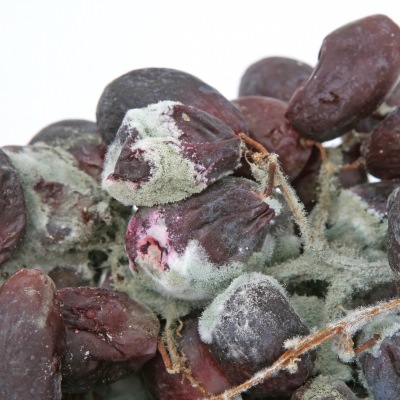A new African Centre of Excellence for Sustainable Cooling and Cold-chain (ACES) based in Rwanda is helping to get food to markets quickly and efficiently. It will help farmers and fisheries in Africa to reduce the amount of food produced for human consumption which is lost due to poor post-harvest practices and handling – tackling hunger, under-nutrition, and environmental impacts, while boosting profits and creating jobs. In addition, it will also be looking to improve cold-chains for vaccines and health, now recognised globally as a key challenge for Covid-19 immunisation.
Why is the Centre needed?
Hunger and under-nutrition are persistent global challenges and agricultural households in Africa have high levels of poverty, despite significant investment into food production.
In sub-Saharan Africa, 54% of workers rely on the agricultural sector. Farmers are losing 30-50% of food produced for human consumption due to poor post-harvest practices and handling. In the ‘first mile’ of food supply, where the majority of post-harvest losses occur, perishable produce needs to be properly aggregated and processed. Establishing and maintaining a suitable cold-chain also presents challenges: processes and equipment are typically energy-intensive, relying on fossil fuel-based power generation and transportation, with refrigerants that often have a high climate impact.
The Centre is located in Kigali, Rwanda. Rwanda is one of the least urbanised countries in Africa with 73% of the workforce employed in agriculture. A further challenge is that agriculture in Rwanda is dominated by six million small and marginal farmers, each on average farming less than 0.6 hectares of land and the country’s population is estimated to nearly double by 2050.
The Centre will address the challenge of how to create local and global “field to fork” connectivity from these small-scale farmers while leapfrogging to sustainable solutions which drastically reduce dependency on fossil fuels and high climate impact refrigerants. Its key goals are:
- Turn food loss into sales.
- Enhance access to nutritional foods in urban markets.
- Develop new business opportunities with village-level resources.
- Enable more effective roll-out of vaccines
To achieve this, the Centre will link farmers, logistics providers and agri-food businesses with a range of experts and investors from across the continent. By bringing together energy, technology, finance and policy expertise from the UK and in-country, the Centre offers an opportunity for commercial partners to develop and demonstrate pathways to delivering affordable, lowest carbon emissions cooling and cold-chain systems while meeting Africa’s social and economic cooling needs. It will also provide teaching and industrial collaboration to put integrated sustainable cooling solutions into action.
A further benefit of the Centre is the link to the broader cooling needs for medical and health cold-chains that are critical for pandemics, epidemics and natural disasters. Alongside the task to develop, test and manufacture vaccines, distribution for mass, rapid treatment is needed – likely in a cold-chain to protect the potency.
Living Labs
The first ‘Living Lab’ in rural Rwanda is anticipated for launch in 2022, and opportunities for additional ‘Living Labs’ are being explored with other African governments to scale-up the reach of ACES.
The vision is that these ‘Living Labs’ - situated in strategic locations with particular areas of specialisation - will act as the deployment and implementation arm, showcasing how solutions developed at the ACES hub in Kigali can be applied by communities, and offer on-the-ground technical and business assistance as an enabling environment for sustainable cold-chain to thrive. The ‘Living Labs’ will also conduct state-of-the-art research and offer technical assistance, demonstrations and knowledge transfer - exchanging best practice and lessons learned as part of an inter-connected whole.
Supporting Rwanda’s agri-economy
ACES has recently has taken a major step forward with a US$3.5 million (£2.4 million) funding boost from the Department for Environment, Food & Rural Affairs (DEFRA).
The contribution from DEFRA will support:
- The Centre’s design and technology kit-out.
- The work of the British university partners (Birmingham, Heriot-Watt, Cranfield, London South Bank).
- The University of Rwanda and its hiring of the first ACES dedicated academics as host of the Centre.
- The UN Environment Programme’s global United for Efficiency (U4E) effort, whose award-winning Rwanda Cooling Initiative with the Rwandan Government provides ACES’ foundation.
Cranfield will be delivering its expertise in sustainable and resilient food systems with the objectives of reducing food loss and waste, and maintaining the nutritional quality of food across the supply chain.
Dr Natalia Falagán, Lecturer in Food Science and Technology in the Plant Science Laboratory at Cranfield University and co-designer of this initiative, said: “Improving the cool and cold supply chain in Africa could be a major boost to both the environment and the economy through reduced food loss and waste. We are delighted to be adding Cranfield’s expertise in postharvest management and food science to this vital project.”
This project supports Rwanda’s National Agricultural Export Development Board’s (NAEB) five-year strategy to double agricultural exports by 2024-25 and significantly increase exports of aqua-culture, beef, and other temperature-sensitive products.
In a world where climate change has a negative impact on food cycles, intensifying food production alone is no longer a viable solution to respond to the emerging food demand - mitigating food loss will be key to food security.

